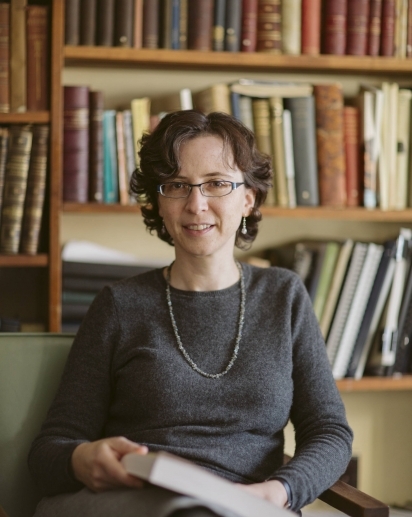
My Dartmouth colleague Professor Julie Hruby reached out to ask if I thought her story would be a good fit for my “3 Questions” series. Julie shared with me the challenges (and gifts) of navigating an academic career while managing a cancer diagnosis. I asked if Julie would be willing to share her story with this community, and she agreed.

Q: Tell us your story.
A: Almost exactly 12 years ago, I was diagnosed with a left frontal astrocytoma (a type of brain cancer), just after I moved from Berea College to Dartmouth College. I have lived for about double my median life expectancy, for which I’m exceedingly grateful. I have gone through three rounds of surgery (one in 2012, a second in 2014 and a third in 2022), and one round of radiation (after surgery in 2014). I am newly on an immunotherapeutic medication that has just been approved by the FDA, which is a real breakthrough, and which holds great promise for delaying the time to progression, at least statistically. But my illness will eventually be fatal, or at least, it will be if I don’t get hit by a meteorite or something.
Strangely, I had had debilitating depression before the first round of surgery, and that became better quite literally instantly. There was no comparison: Colors were brighter, flavors were more intense and delightful, and I didn’t feel like I was wading through molasses anymore. You can’t believe the extent to which the alleviation of depression made the diagnosis more palatable!
Q: How has your diagnosis impacted your academic career?
A: Well, I’ve been on the tenure clock since 2012, although two of those years were due to COVID, because I do fieldwork. Actually, I’ve been on the tenure clock since 2008, if you count my time at Berea College. So, that’s a thing.
In terms of disability, I don’t think it was obvious through the first couple of rounds of surgery, but I did get ferocious migraines, and I periodically lost the ability to recall nouns. Since the last round of surgery, however, I’m clearly dealing with a disability, namely aphasia. I can read just fine, and I can type moderately well, but I have had to relearn how to speak, in four languages (English, modern Greek, German and Latin, in order of declining ability).
After the last round of surgery, I could only say “yes” and “yes, but” (for no). Through speech therapy, I have mostly regained my English, though I struggle with proper nouns because there are no synonyms for those, and with technical terms (ditto). I also struggle when I’m tired, and I’m basically tired after about four hours, largely from trying to speak, so I try to hold off on doing anything past that. Also, when there’s a lot of ambient noise, that’s really challenging.
Happily, I have more projects than I could do in three lifetimes, and I just keep thinking up more, so I keep a list. But writing is definitely more difficult than it was; I used to write beautifully, and I can actually recognize the right words, so I’ve been using ChatGPT as a thesaurus.
Q: What do you think our community should know about academic careers and disability?
A: Maintaining an academic career is tremendously difficult, in the best of circumstances. And it’s much, much harder in circumstances that are more trying. In my experience, you should either allow people to take the lead and ask for accommodations, or if you know that the person is disabled, you should ask what they need, without preconceptions.
The practice of making individual departments pay for any disabilities that arise is horrible, both in terms of equity—small departments tend not to have the resources that large ones do—and in terms of basic fairness. For example, if I were to ask for a low flicker-rate computer monitor, my colleagues might decide that they don’t need to fund a substantially more expensive stage for a digital macroscope. (I should say, this has never happened to me, but it conceivably could in a more resource-poor environment.)
For people who are in a state of crisis, you could read this. Be aware that the extent to which other academics may be willing to disclose invisible disabilities is highly variable. For example, don’t make assumptions either way about candidates for jobs—they may or may not have invisible disabilities, and you might not know, but that’s completely OK.